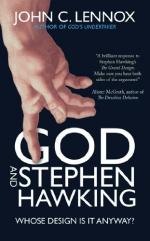|
This section contains 921 words (approx. 4 pages at 300 words per page) |

|
SOURCE: "Cosmic Quarrel," in Scientific American, Vol. 261, October, 1989, pp. 22, 26.
In the following essay, the critic discusses the theoretical disagreement between Hawking and philosopher Huw Price.
Theoretical physicists, equipped with counterintuitive perceptions and a formidable mathematical armory, are considered by philosophers to be armed and dangerous. Their turf—however interesting—is usually avoided. Huw Price, a philosopher from the University of Sidney, belongs to a different breed. He has taken on Stephen W. Hawking of the University of Cambridge, one of the world's leading cosmologists. The rift developed over whether Hawking has, as he claims, found a possible explanation for the arrow of time.
Time occupies a strange place in the cosmological scheme of things. Most physical laws would allow the universe to run equally well forward or backward. The major exception is a relentless tendency for the extent of disorder in the universe, or entropy, to increase. In...
|
This section contains 921 words (approx. 4 pages at 300 words per page) |

|


